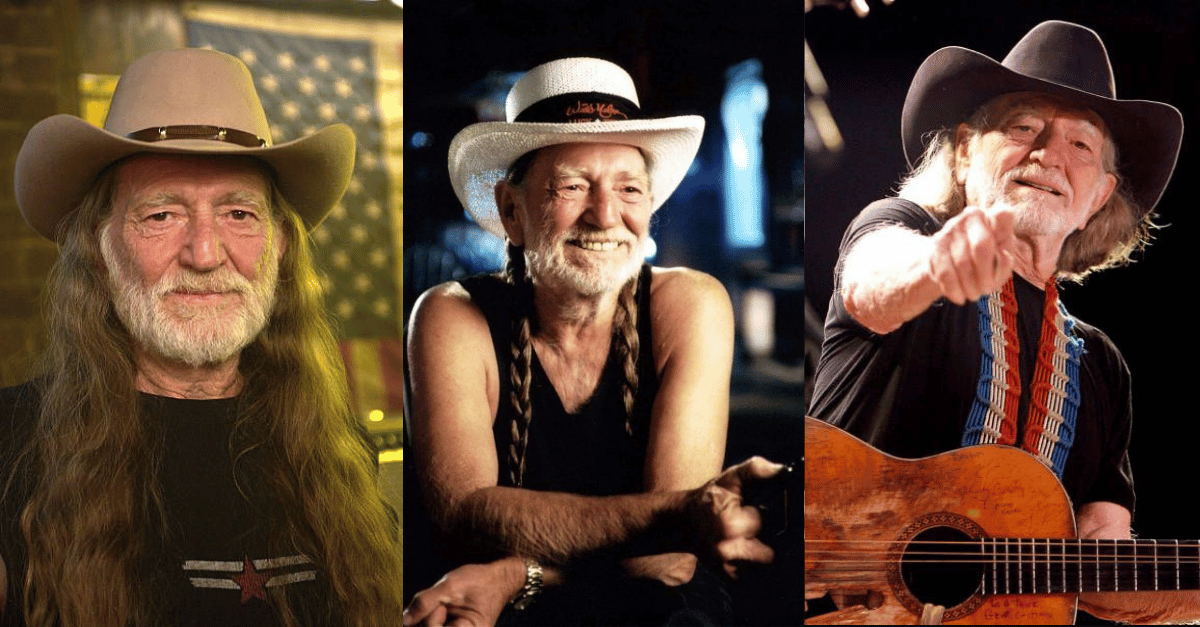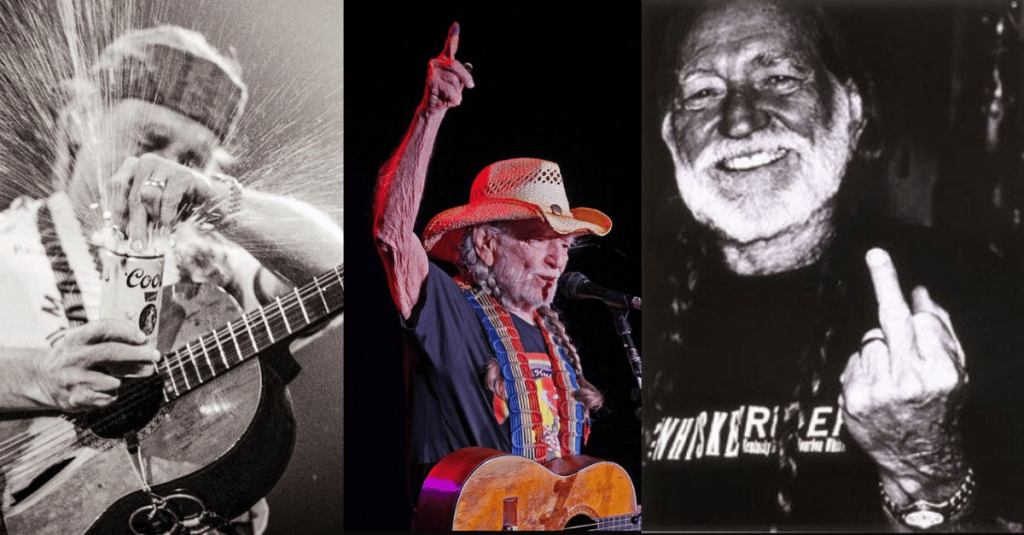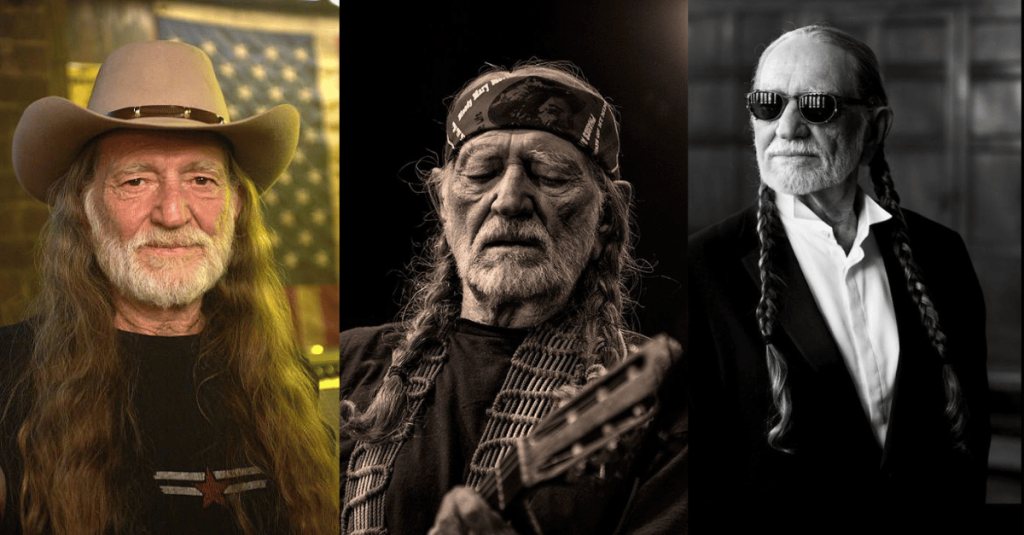
Willie Nelson, born on April 29, 1933, in the small town of Abbott, Texas, is not just a country music star — he’s an enduring symbol of American resilience, creativity, and rebellion. With a career spanning over six decades, Nelson has carved out a place in history, not only for his music but also for his unconventional lifestyle, activism, and deep connection to the American spirit. His legacy is that of a true outlaw, both in music and life, breaking boundaries and defying norms, which has earned him the admiration of fans from all walks of life.
Achievements and Influence
Nelson first rose to prominence in the 1960s and ’70s, but his path to success was far from smooth. Despite early struggles in Nashville, where the rigid structure of the music industry stifled his creativity, Willie’s persistence paid off. He broke through with hits like “On the Road Again,” “Blue Eyes Crying in the Rain,” and “Whiskey River,” songs that captured the raw emotion of life on the road and the beauty of the simple things.
By the mid-1970s, Willie Nelson, along with artists like Waylon Jennings and Merle Haggard, became central figures in the “outlaw country” movement. This genre was a direct response to the polished, formulaic sound of mainstream country music at the time. Willie’s 1975 album, Red Headed Stranger, became one of the genre’s defining records, merging folk, jazz, gospel, and rock elements into a sound that was uniquely his own. The album’s stripped-down production and Nelson’s introspective lyrics spoke to a generation of listeners who wanted something authentic and raw.
Willie’s musical influence stretches far beyond country. His collaborations with musicians from various genres, including Ray Charles and Bob Dylan, showcase his versatility and openness to experimentation. The success of Stardust, his 1978 album that featured covers of American pop standards, is a testament to his ability to transcend genre boundaries. The album stayed on the country charts for an incredible 10 years, further solidifying Willie’s place in music history.

Beyond Music: Activism and Acting Career
But Nelson’s legacy isn’t confined to music. He’s a passionate activist, dedicating much of his life to causes he believes in. A staunch advocate for the legalization of marijuana, Willie has long been vocal about the benefits of the drug, both medicinal and recreational. In 2015, he launched his own cannabis brand, “Willie’s Reserve,” to help normalize marijuana use and support sustainable farming practices. His work in this field has cemented his reputation as a trailblazer not just in music but in cultural change.
Willie is also committed to supporting American farmers. In 1985, alongside fellow musicians John Mellencamp and Neil Young, he co-founded Farm Aid, an annual benefit concert aimed at raising awareness and funds for struggling farmers. The event has since raised millions of dollars and continues to be a vital force in the fight to protect small family farms in America.
Nelson has also ventured into acting, with roles in films like The Electric Horseman, Honeysuckle Rose, and Stagecoach. Though acting never overshadowed his musical career, his laid-back, charismatic persona made him a natural fit for the silver screen.
Lesser-Known Facts
While Nelson’s public image is that of a laid-back outlaw, there’s much more to the man behind the music. For instance, Willie is a dedicated martial artist, holding a black belt in Taekwondo and a fifth-degree black belt in GongKwon Yusul, a modern Korean martial art. This practice reflects the discipline that many might not associate with his free-spirited lifestyle, but it’s indicative of his focused and determined nature. He often credits his martial arts training with keeping him physically fit and mentally sharp well into his later years.
In addition to his passion for martial arts, Willie is an astute businessman. Besides launching “Willie’s Reserve,” his cannabis brand, he’s been an advocate for biodiesel fuels for years. His tour bus famously runs on biofuel made from vegetable oil, and he’s promoted this cleaner, greener energy source as part of his environmental activism. He’s also an author, having written several books about his life, philosophy, and music, including his memoir It’s a Long Story: My Life.
Despite his rebellious image, Willie Nelson’s work ethic is unparalleled. He’s penned over 2,500 songs, recorded more than 70 studio albums, and collaborated with a wide array of artists, from Johnny Cash to Dolly Parton. His joint albums with Waylon Jennings, Kris Kristofferson, and Johnny Cash, especially under the supergroup The Highwaymen, are legendary and have left an indelible mark on the music world.

Willie’s Enduring Legacy
Even as he approaches his 90s, Willie shows no signs of slowing down. He continues to tour, often performing more than 100 shows a year, and remains a prolific recording artist. In 2020, Willie released his 70th studio album, First Rose of Spring, a testament to his enduring creativity and passion for music. In 2023, he was inducted into the Rock and Roll Hall of Fame, a recognition of his influence not just on country music but on American music as a whole.
His legacy as a musician, activist, and cultural icon continues to inspire countless fans and artists alike. From his humble beginnings in Abbott, Texas, to his role as a pioneer of outlaw country, Willie Nelson remains a symbol of individuality, resilience, and artistic freedom.







